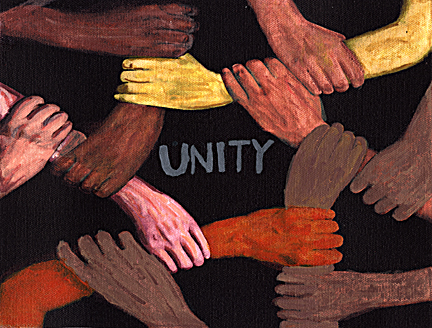This is the second post for the series of MAGYC (Meditations on the Attributes of GOD for Young Christians). Last time we talked about the importance of knowing GOD. Now we will start to talk about God's attributes as the primary concepts to know GOD.
 |
| This photo was taken from this URL. |
"For Me, In my opinion, I think..."
We, the youth, love these expressions. We love to share what we think of certain things. We love giving our opinions, sometimes to the point that we already think there's no such thing as right or wrong or true or false, that it's just a matter of opinion! But that idea is foolish. It's even self-contradicting. If you said that there is no such thing as correct, then, you must believe that even what you said is not correct. If you believe that all our statements are right and my statement says "Your statement is wrong.", is my statement still right? C'mon!
We must believe that absolute truths (that is, unalterable and permanent facts) exist. Triangles always have three sides, 1 + 1 is always equal to 2, etc.
This is also true with GOD. There are ideas about GOD that are either true or not, no matter what your opinion is. GOD is not a barbie doll which we can dress the way we want, act the way we want, and look the way we want. There are things about GOD that will remain true, even if we don't like them.
And one of the primary (true) things about GOD that we need to know are His attributes.
An online dictionary defined the word 'attribute' as "a quality or characteristic inherent in or ascribed to someone or something." Attribute could be synonymous with properties or characteristics. Just think of any object. Say a basketball. The color, size, shape, and hardness are some of its attributes. And without these attributes, no one can know what a basketball is.
Same with GOD. GOD is more than a name! He also has attributes, which He revealed in His word. He has attributes that if you distorted, it's no longer Him.
In this tolerant generation, you can hear lots of people say "Muslims, Hindus, Christians and other religions are just the same because they all believe in GOD." But who is that GOD whom they believe? What's His proper name? What are His attributes/characteristics? How does He act? What does He say? Ask these groups of people and they'll have different answers! That simply means they don't have the same GOD. As Christians, we believe that only the GOD of the Bible is the true GOD (Deuteronomy 6:4; Isaiah 44:8; 45:5,6). And, like it or not, whatever He is in the Bible, that He is. You can imagine or invent who GOD is as so many false religions do but that will remain unreal. Simply put: you can't manipulate GOD. He is not a barbie doll or an action figure.
"The foundation of all true knowledge of God must be a clear mental apprehension of His perfections [or, attributes] as revealed in Holy Scripture." (A.W. Pink, The Attribute of God)
“Much of our difficulty as seeking Christians stems from our unwillingness to take God as He is and adjust our lives accordingly. We insist upon trying to modify Him and bring Him nearer to our own image.” (A. W. Tozer)
It is interesting to note that the very meaning of God's name YHWH or Jehovah is "I am who I am" (Exodus 3:13-15). You can't change Him (unchangeability/immutability is already one of His attributes!). But you can (and must) know and worship Him. In fact, the effect of truly seeing His attributes is worshiping Him:
"The LORD passed before him and proclaimed, "The LORD, the LORD, a God merciful and gracious, slow to anger, and abounding in steadfast love and faithfulness, keeping steadfast love for thousands, forgiving iniquity and transgression and sin, but who will by no means clear the guilty,visiting the iniquity of the fathers on the children and the children’s children, to the third and the fourth generation." And Moses quickly bowed his head toward the earth and worshiped." (Exodus 34:6-8, ESV)
In the passage above, some of GOD's attributes are already mentioned: grace, patience, love, and justice. Next time we will have a closer look at these attributes categorically and individually. Stay updated!
In the passage above, some of GOD's attributes are already mentioned: grace, patience, love, and justice. Next time we will have a closer look at these attributes categorically and individually. Stay updated!











